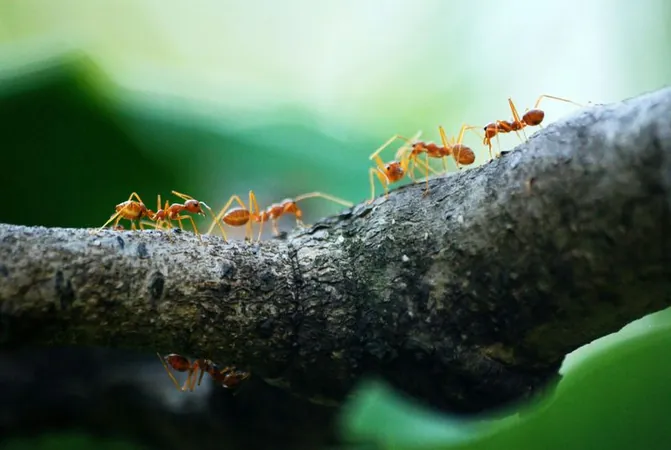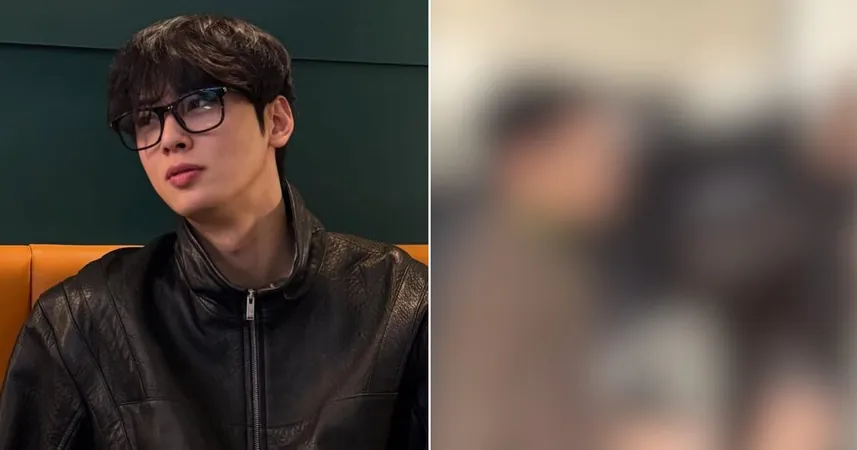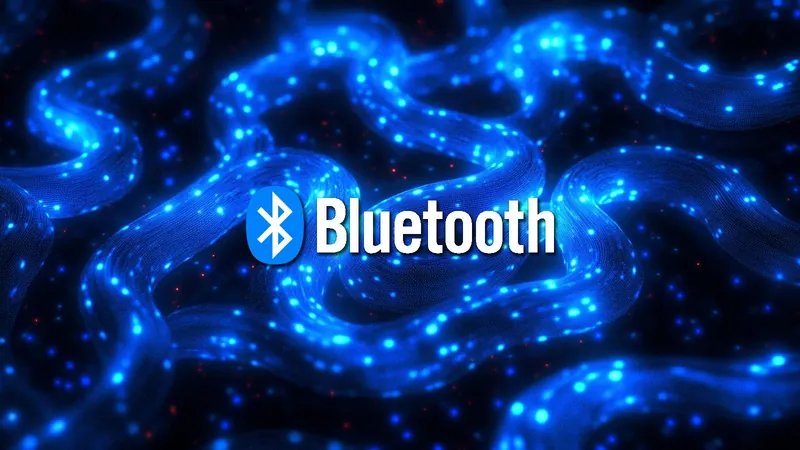
Ants Outshine Humans in Collaborative Challenges: A Surprising Study Reveals the Secrets of Super-Organisms
2025-01-05
Author: Ming
Ants vs. Humans in Problem-Solving
In an intriguing new study conducted by researchers at the Weizmann Institute of Science in Israel, a group of ants demonstrated superior problem-solving abilities compared to humans when faced with the challenge of moving large loads through a sophisticated maze. This groundbreaking research, published in the Proceedings of the National Academy of Sciences, highlights the remarkable strategies and collective memory of ants that allow them to persist and avoid errors during teamwork.
The Wisdom of Crowds?
While ants thrive in larger groups, the opposite appears to be true for humans. The study found that humans did not significantly improve their performance when working together. "Forming groups did not expand the cognitive abilities of humans," explained lead researcher Professor Ofer Feinerman. He emphasized that the well-known concept of the "wisdom of the crowd," often celebrated in our social media age, did not manifest during their experiments.
Collective Memory and Emergent Intelligence
The research offers an eye-opening perspective on group decision-making and supports the idea that "for ants, the whole is greater than the sum of its parts." This phenomenon often leads to colonies being described as "super-organisms," akin to a living body where individual cells cooperate harmoniously.
The Experiment Setup
For the experiment, two sets of mazes were constructed to fit the dimensions of both ants and humans. The ants were tested in various group sizes: as single individuals, in groups of seven, and in larger groups of 80. In contrast, humans faced the challenge alone, in groups of six to nine, and in larger groups comprising up to 26 participants. To ensure a fair comparison, humans were restricted from communicating verbally or through gestures, wearing masks and sunglasses to obscure their facial features. The performance was meticulously analyzed through video recordings and sophisticated tracking models.
Ants Excel in Group Settings
While humans initially outperformed ants individually, showcasing their strategic planning skills, the scenario dramatically shifted in group settings. The study revealed that ant groups not only outperformed individual ants but, in some cases, excelled beyond human capabilities. Ants exhibited remarkable cooperation and memory, allowing them to maintain direction and prevent repeated mistakes. The researchers concluded that, despite individual ants lacking a grasp of the overall problem, their coordinated actions resulted in emergent cognitive abilities.
Human Limitations in Communication
Interestingly, when communication was limited, human performance in groups plummeted. Instead of working collaboratively, humans defaulted to "greedy" solutions that prioritized short-term successes over long-lasting benefits, often settling for the lowest common denominator.
Cooperation Over Competition
Feinerman elaborated on the ant community, stating, "An ant colony is essentially a family. All the ants in the nest are sisters, sharing common interests. It’s a cohesive society where cooperation triumphs over competition."
The Ants' Unique Teamwork
The study specifically focused on the species Paratrechina longicornis, chosen for its unique capabilities in teamwork. While humans may have entered the study motivated by competition, it's fascinating to note that the ants were far from competitive; they were simply misled into thinking the heavy loads were a "juicy edible morsel" intended for their nest.
Implications for Human Teamwork
This study not only shines a light on the impressive skills of ants but also serves as a wake-up call to humans about the limitations of group dynamics and the power of collective intelligence found in nature. Could these findings prompt a reevaluation of how we approach teamwork in various settings? One thing is clear: ants may hold valuable lessons for us all.




 Brasil (PT)
Brasil (PT)
 Canada (EN)
Canada (EN)
 Chile (ES)
Chile (ES)
 Česko (CS)
Česko (CS)
 대한민국 (KO)
대한민국 (KO)
 España (ES)
España (ES)
 France (FR)
France (FR)
 Hong Kong (EN)
Hong Kong (EN)
 Italia (IT)
Italia (IT)
 日本 (JA)
日本 (JA)
 Magyarország (HU)
Magyarország (HU)
 Norge (NO)
Norge (NO)
 Polska (PL)
Polska (PL)
 Schweiz (DE)
Schweiz (DE)
 Singapore (EN)
Singapore (EN)
 Sverige (SV)
Sverige (SV)
 Suomi (FI)
Suomi (FI)
 Türkiye (TR)
Türkiye (TR)
 الإمارات العربية المتحدة (AR)
الإمارات العربية المتحدة (AR)